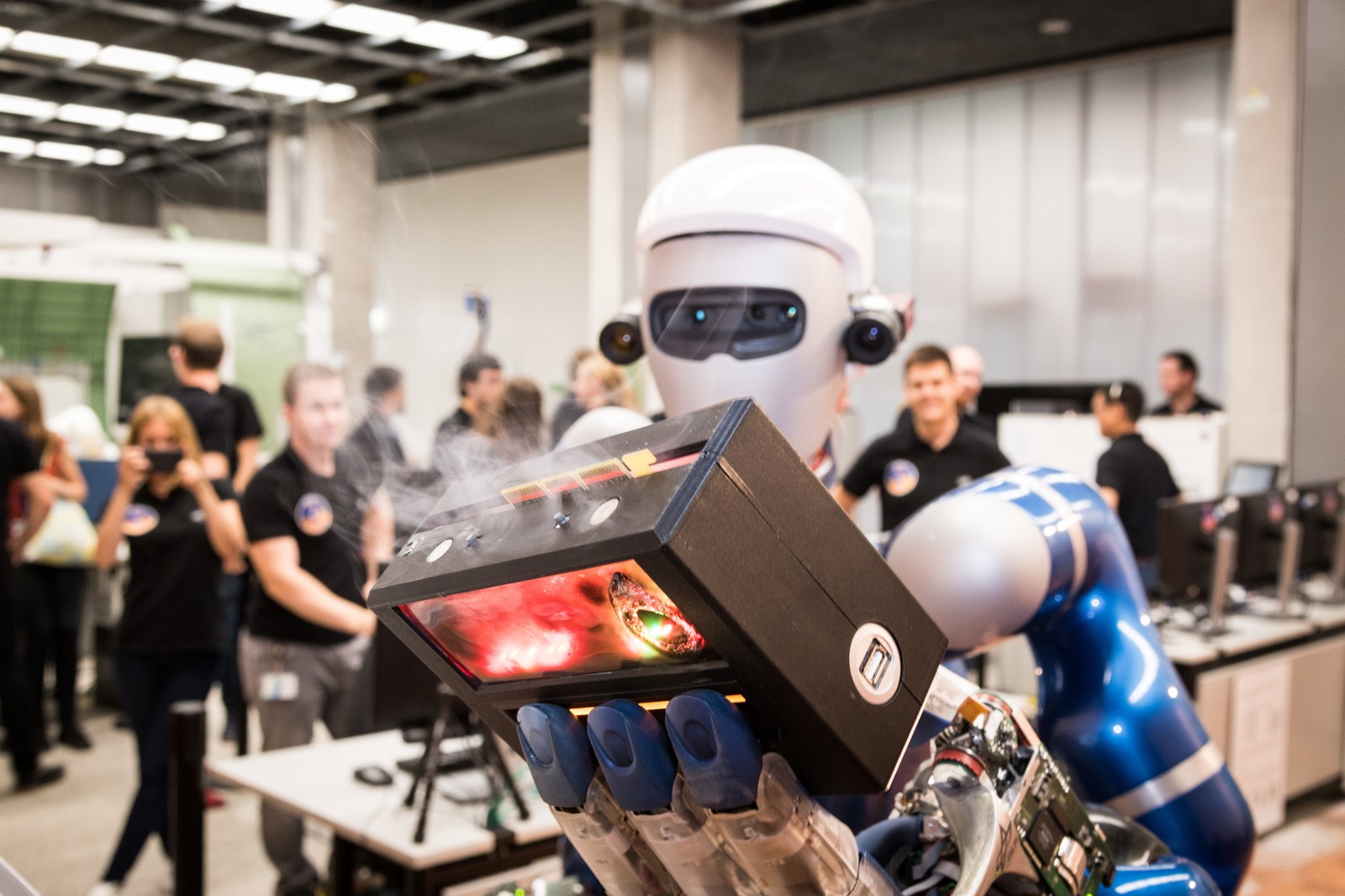FUTURO

The FUTURO Young Investigator Group wants to raise the degree of autonomy of existing robots to the next level in order to pave the way for future manned missions to the Moon and Mars. It aims to eliminate the lack of fault tolerance and a restricted catalogue of actions that limit the decision-making capabilities of today's robots.
Duration: | 2020-03-01 to 2023-02-28 |
Project partners: | University of Bremen, Institute for Artificial Intelligence |
Website: | |
Field of application: | Planetary exploration |
Funding: | DLR Executive Board for Space Research and Technology |
Project details
The future of manned spaceflight belongs to teams of astronauts and robots that are advancing further into our solar system than ever before. The deployed robots will catch up with their human counterparts in terms of dexterity and reasoning capabilities. However, there is still a long way to go. Although today's assistance robots are equipped with advanced actuators and sensors, their cognitive abilities lag far behind their potential. The low tolerance to failure and a limited catalog of actions restrict the decision-making possibilities and thus the autonomy of the robots.
The FUTURO Young Investigator Group aims to raise the degree of autonomy of existing robots to the next level. The robot Rollin' Justin is to be enabled to understand the effects of its movements on the environment at any time. The latest methods from the field of Artificial Intelligence (AI) are therefore combined, including modern physics engines, machine learning, and probabilistic planning. This allows the robot to draw conclusions about potential failure states during autonomous execution of tasks in order to avoid similar situations in the future. Furthermore, the robot shall use the proposed method to recognize which changes it causes in the world while it is remotely controlled by an operator via haptic telepresence. This will make it possible to derive new robot actions purely from the control signals of the operator without manual programming. In this sense, the investigations of the Young Investigator Group are intended to pave the way for the forthcoming exploration missions to Moon and Mars.



